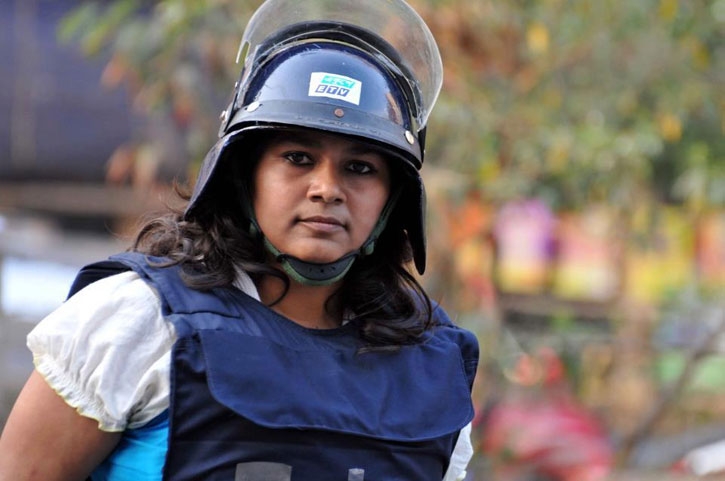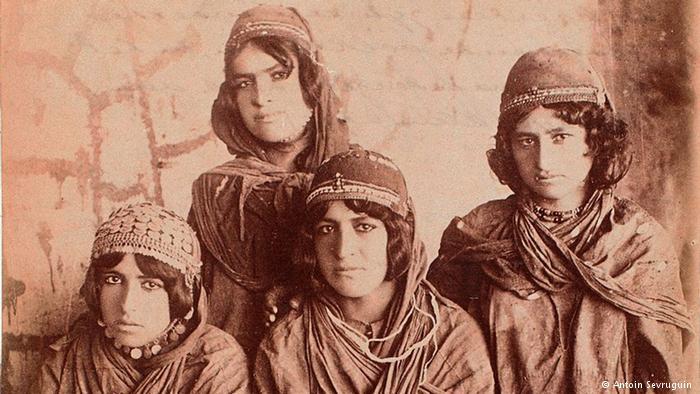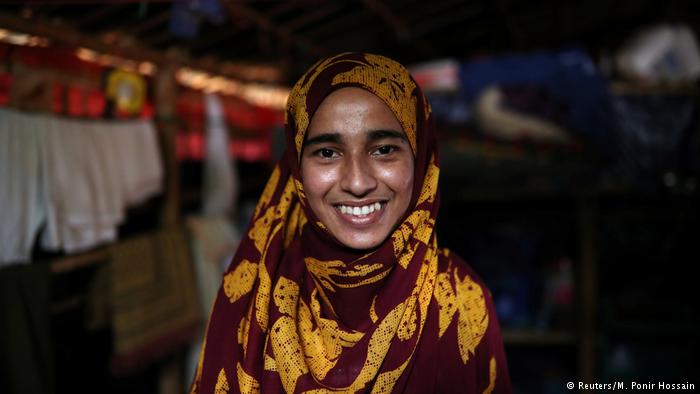Hefazat e Islam’s fear of women
The recent political turmoil in Bangladesh has taken various turns and twists in the last two months. I have spoken about the spirit of Shahbag, war criminals, atheism and so many other issues. I always think, talk and write as a human being. The joys I experience, the disappointments I face, successes that I achieve all are above any gender issues. I hardly consider myself to be different as a female. I am glad simply to have been born. It doesn’t give me extra pride nor doesn’t make me insecure about being a woman.
Growing up in Bangladesh was never a threat to me, being a member of the “second sex.” Our cultural history shows that our part of the world gave women utmost respect, love and affection. I have seen my female family members always rise and shine in their own grounds and how their male counterparts support them. I have been brought up just like any other boy in my family and, in many cases, I have enjoyed more or demanded more freedom than my brothers. However at the age of 34, after I became a mother, I thought about being a woman in my country.
The Jamat E Islam very tactfully termed the Shahbag movement an atheist movement, since all the war criminals are the leaders of Jamat, the political party based on the Islamic Revolution. Hefazat E Islam launched a major showdown in Dhaka on April 6. It is assumed that over five hundred thousand Islamic activists came to the capital to protest against the Anti-Islamic opinions in blogs. They have given 13 points charter for the government to approve and immediately execute or else they will create anarchy in the country and cause a system shutdown.
The thirteen-point demands are real threats to the primary spirit of the Bangladeshi constitution. Secularism and social justice are being questioned and there are demands for change according to Islamic law. The Hefazat also wants to end all “alien” cultural practices such as immodesty, lewdness, misconduct, the culture of free mixing of the sexes, candle lighting in the name of personal freedom and free speech. They also demand the abolishment of the anti-Islamic inheritance law and women’s development policy. They want to make Islamic education compulsory in all levels from primary to higher secondary schools.
The demands are extremely gender-biased and unacceptable in the present context of the world. Presently Bangladesh is a country where both the government and opposition is led by female leaders, 32 million women are working in the garment industry (the “bread earner” for Bangladesh). Female students fare better than their male counterparts in schools and the paramilitary also boasts of women troopers. If the demands of the Hefazat are to be met, they will stall the development of half of the nation.
In a news report published on April 6 in the website BDNEWS24, a garment worker said “Who will feed our families, if we stay home?” She feels insecure about the well-being of her family since she knows if female members don’t earn, the entire family will starve.
Hefazat activists, on their end, have resorted to cruel means. Nadia Sharmin, a TV reporter was brutally beaten by them while she was reporting on their meeting on April 6. They did not like the fact that a woman was reporting about them. The Hefazat believe that women should not venture outside without being accompanied by a male member. She has to cover herself in a proper manner. The Hefazat’s attitude is absolutely unacceptable; people from all walks of society have protested and demanded punishment. No one has been arrested yet. Islam doesn’t teach violence or disrespecting women. However these pseudo Islamists are violating the rules of Quran, as well as the laws of the state.
Bangladesh has achieved the United Nation’s millennium goalsin female empowerment in the past decade. The progress is highly commendable and higher than neighboring countries. To achieve the economical stability and development goals such illogical demands cannot be entertained. The government has rightly ignored these demands; however the upcoming election is the most crucial elections Bangladesh has ever faced. The vote war has put the nation divided into many opinions. I strongly pray and hope that the people who use religion as a product to abuse the power do not win, the female voters of 18-40 years will turn out to be critical for the winner.
Author: Aziza Ahmed
Editor: Manasi Gopalakrishnan








